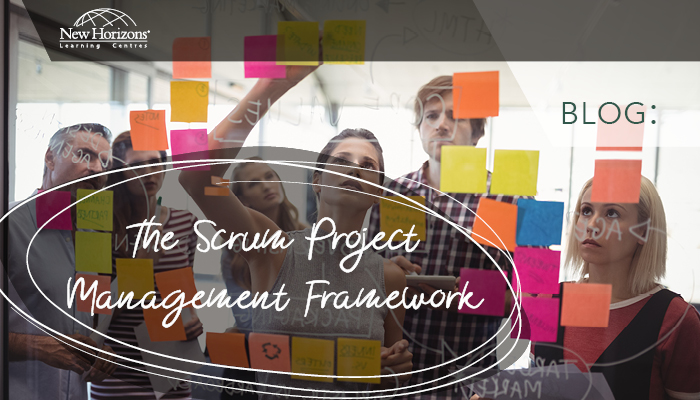
Jun 18, 2014
Try using a START goal.
As I am writing this post on a cold winter's day, I am sitting on a train heading to Melbourne. I have a window seat with my back facing Melbourne. This is the perfect view for my blog post, because it allows me to reflect on where I have come from, what I have achieved thus far, where I am heading, and what I still want to achieve with my life. Where have I come from? I was born in India in 1962. My family migrated to the UK in 1964; I am an Anglo-Indian, a strange race, one with no real home, drifters essentially, but optimists by nature. I am one of four siblings. My parents and I migrated to Australia in October 1982; we landed in Perth, and it was bloody hot! Twenty six years later…what have I achieved on my journey? As I look out of the train window, it comes to me - a successful career in retail, a complex journey in the telecommunications industry, a challenging adventure in business software and currently a reflective era in the field of adult learning. My legacy - three children, Matt (29), Winter (12), and Indra (9). Kay, my beautiful wife, honest, loyal, refreshing and above all, trustworthy. I have lived in five countries and worked in nine. My highest qualification is a Master of Education; I also hold six Diplomas, but who’s counting. Currently, my mum, Estelle, and my eldest son are in the UK visiting my sister, Rose, and mum’s brother, Stanley. This trip will be mum’s last; she turns 77 this year. To me and to our families, what mum is doing is hugely inspiring. Me? I turn 52 this August. My life? In the words of Joe Walsh "life’s been good to me so far." So that’s me and family, let’s turn to you. Today, I want to share a goal-setting formula that might help you to get to where you want to be. I developed it some years ago; it is the result of endless self-reflections. It works for me; I hope it works for you. I have named it the START formula; let me know your thoughts. Here it goes: Set – Set the goal(s) in the area(s) in your life you would like to improve such as health, financial, work, family, sport, well-being, education, etc. Then sift through the type of goal(s) you need to set - short-term, mid-term or long-term. Next up, prioritise your goals into what you ‘must achieve,’ ‘need to achieve’ and would be ‘nice to achieve.’ Set a date to achieve your goal by - no date, no goal. Finally, set the proof-measures you intend to use along the way. Use more ‘hard’ measures than ‘soft’ measures. Let the facts do the talking, do the motivating. Transition – Firstly you must transition away from the behaviour(s) that are stopping you from achieving your goal(s). Allow yourself good time to do this; be real, but put a timeline on it. You must at some point say goodbye to the ‘old’ behaviours, the old you. Transitioning away from the ‘old’ behaviours will help you transition towards the ‘new’ behaviours that will help you achieve your goal. It’s that easy! Being able to continually reinvent one-self is a skill worth mastering. Use your own reflections, be honest with yourself, and keep pushing yourself towards the ‘new’ you. You’ll know if you’re getting there because your new behaviour will make you feel vulnerable. You start to feel vulnerable when you ‘think, behave and communicate’ in a new way. Start to embrace vulnerability. Adjust – Adjust any behaviour that is in the way of your goal. You might need to ‘turn’ the behaviour ‘up’ or turn it 'down,' put it ‘on hold’ or upon reflection ‘delete it.’ Seek advice from people that you trust and people that you don’t trust as they are usually more objective. You might need to ‘adjust’ relationships at work as well as new and dear relationships with friends and family members. Let them know what you are trying to achieve; ask them to help you and to not hinder your progress. That said, if your goal means them sacrificing something so you can achieve your goal then ensure you include them when you celebrate the achievement of your goal. At worst, don’t forget to thank them in person. Routine – Consciously practice the ‘new’ behaviour(s) until you can perform the skill reliably, at will. So if your START goal is to become a better listener, then routinely and consciously practice not interrupting people mid-sentence and practice not taking over the conversation. Consciously stop judging them and consciously stop finishing off their sentences for them. Remember, at this point, this is a ‘new’ behaviour so expect to feel vulnerable, see it through; don’t return your ‘old’ listening habits. Practice the new skill until it enters the unconscious parts of your brain – until it becomes second nature. When you perform the ‘new’ skill, the ‘new’ behaviour, the ‘new’ thinking, and when you demonstrate it instinctively, without thinking, you have achieved your goal. Celebrate, say thank you to those who have helped you, reward yourself and then quickly ‘set’ your next START goal. Transform – Jump on a train, face the wrong way and look back at the ‘old’ you. Pinpoint areas of your ‘core’ that have always held you back, lack of self-belief, risk-averse, environments, people and their expectations of you. Then find something that will reflect your image - you could use the screen of your phone or iPad or maybe display your favourite selfie - look at yourself, examine the ‘current’ you and ask yourself "will the ‘current’ you get you to where you want to be in the short-term, mid-term and long-term?" Then face yourself in the direction of travel, in the direction you want to travel in your life, forward, visualise yourself self-actualising, being all you can be to you, to your family, to your friends, to your work colleagues and to your community. So there you have it, START goals. Try it out yourself and see if it'll work for you. Until next time, stay centered, stay cool, stay healthy and keep contributing to the greater good.How do your Excel skills stack up?
Test NowNext up:
- Data Quality in SQL Server 2014 for dummies (Part 1)
- Automatically reach your deadlines with scheduled tasks in Microsoft Project
- Manage your administration with ADAC and PowerShell
- Customise the weather forecast in Outlook 2013
- Data Quality in SQL Server 2014 for dummies (Part 2)
- Protecting content in Microsoft Word with 'Restrict Editing'
- How to populate tables in Excel VBA
- Monitoring communication sessions in Lync Server 2013
- A truly botched presentation…but Samsung are happy!
- Combine MATCH and INDEX in Excel for a powerful tool
Previously
- Taking the shortcuts in Windows 8
- Multi-level sorting made possible in Microsoft Word
- Spring clean your PC with Windows ‘Disk Cleanup’
- Pinpoint your 3D chart's data points with drop lines in Excel
- The seven keys to develop your personal effectiveness
- 4 tips to make you a Windows 8.1 pro
- Sorting made easy with custom lists in Excel
- TechEd 2014 – Australia’s largest Microsoft IT exhibition is evolving!
- Communicating clearly to save time and money
- Reliability Monitor in Windows 8













